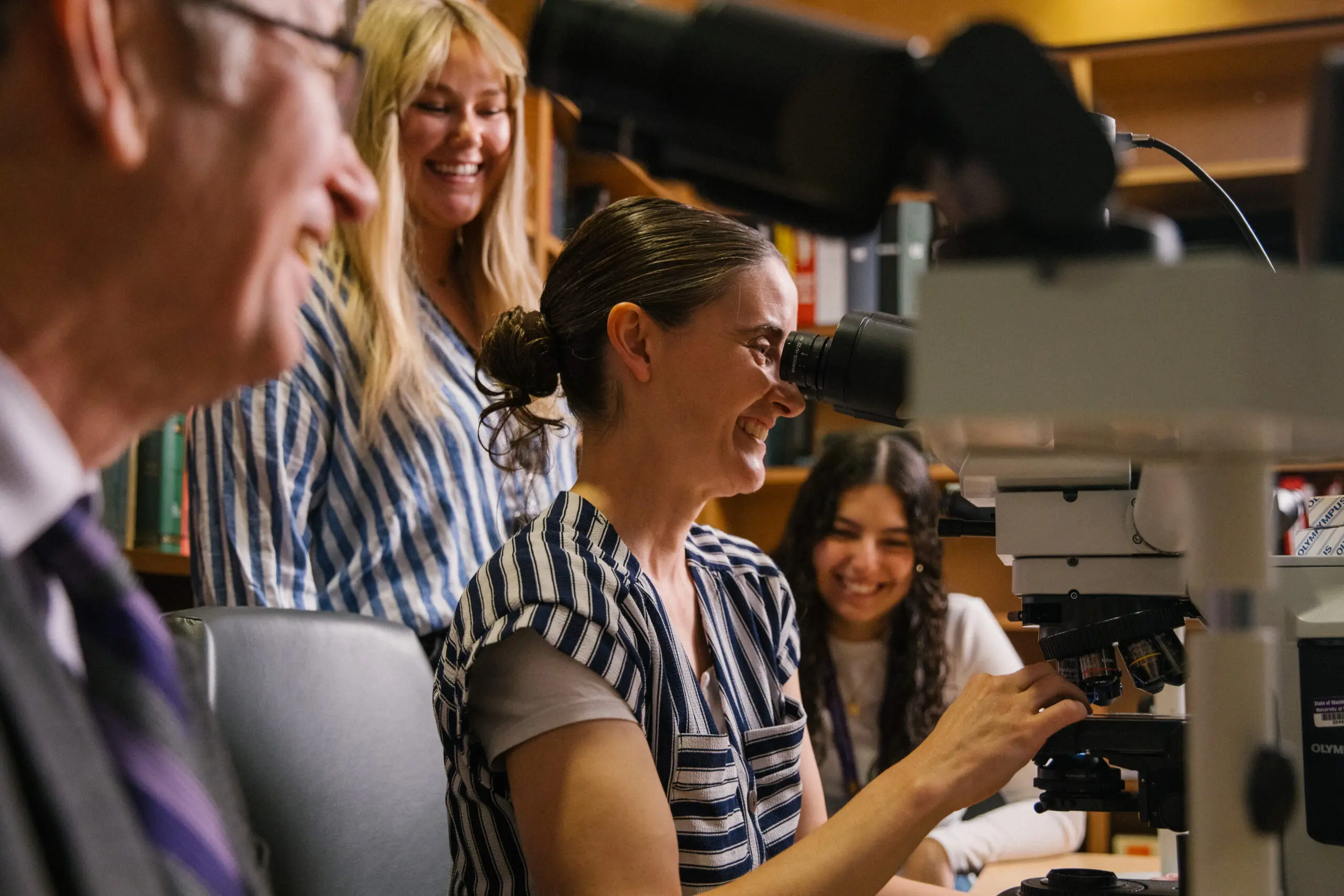A UW Medicine team in August became the first in the Pacific Northwest to transplant an intestine in an adult patient.
Savanah Oberts, 26, of Lakebay, Washington, received a donor intestine and a liver on Aug. 8 at UW Medical Center in Seattle. She is recovering at the hospital but hopes to be discharged within the next week or two.
Oberts had suffered from malrotation of the intestine, a congenital condition in which the intestine is less affixed within the abdomen, so at any point it can twist and cut off its blood supply. Oberts was unaffected until five years ago, while attending college in Bellingham, Washington. Her bowel twisted and died and needed to be removed in an emergency surgery.
Since then she has eaten no food, being sustained solely by total parenteral nutrition, or TPN, an intravenous drug formula intended to keep patients alive while awaiting intestinal transplant. Long-term TPN use, however, is known to increase the risk of liver dysfunction, and that was the case with Oberts. When her liver failed, she became a candidate for an intestine-liver transplant.
“When you lose your bowel, you lose a huge mass of neurons, a whole microbiome, hormonal secretions that the body needs and the feedback of the bowel to the brain,” said Dr. Jorge Reyes, the UW Medicine transplant surgeon who performed Oberts’ procedure. “The remaining foregut – stomach, duodenum, pancreas and liver – tend not to work well.
“When you transplant a bowel, all of these things don’t normalize immediately. Peristalsis of the intestine, for example, the synchronous pushing of foodstuff, doesn’t occur for a while because the nerve impulses from the native gut have to re-establish with the nerves that were cut in the recovery of the donor organ. A lot of the physiology is delayed,” Reyes said.
In the procedure, the donor intestine is not washed out beforehand; rather, it is transplanted with its existing bowel bacteria so the recipient doesn’t have to establish a microbiome from scratch.
Post-transplant, Oberts has started to take popsicles and water by mouth as well as having soft food and liquid introduced directly to her intestine via tube. She again is on TPN, albeit a much smaller dose than before, to ensure she gets enough calories and nutrition. The plan, said her mom, Cathy Oberts, is to gradually increase tube feeds and food by mouth and decrease TPN.
Oberts is the first adult to receive an intestinal transplant in the Pacific Northwest. Seven others, all children 10 or younger, have undergone the procedure at Seattle Children’s; Reyes performed all of those surgeries.
Although she is an adult, Oberts suffered from a pediatric pathology, Reyes said. Most intestinal failures in children involve hereditary causes, whereas an adult’s need for such a transplant might involve a gunshot wound, clotting of vessels, inflammatory or scarred bowel, and another acquired conditions.
Only three states – Florida, Nebraska and Pennsylvania – have performed at least 400 intestinal procedures; 25 states have none to their credit. California, to the south, and Nebraska, to the east, are states closest to Washington to have centers that perform such transplants.

